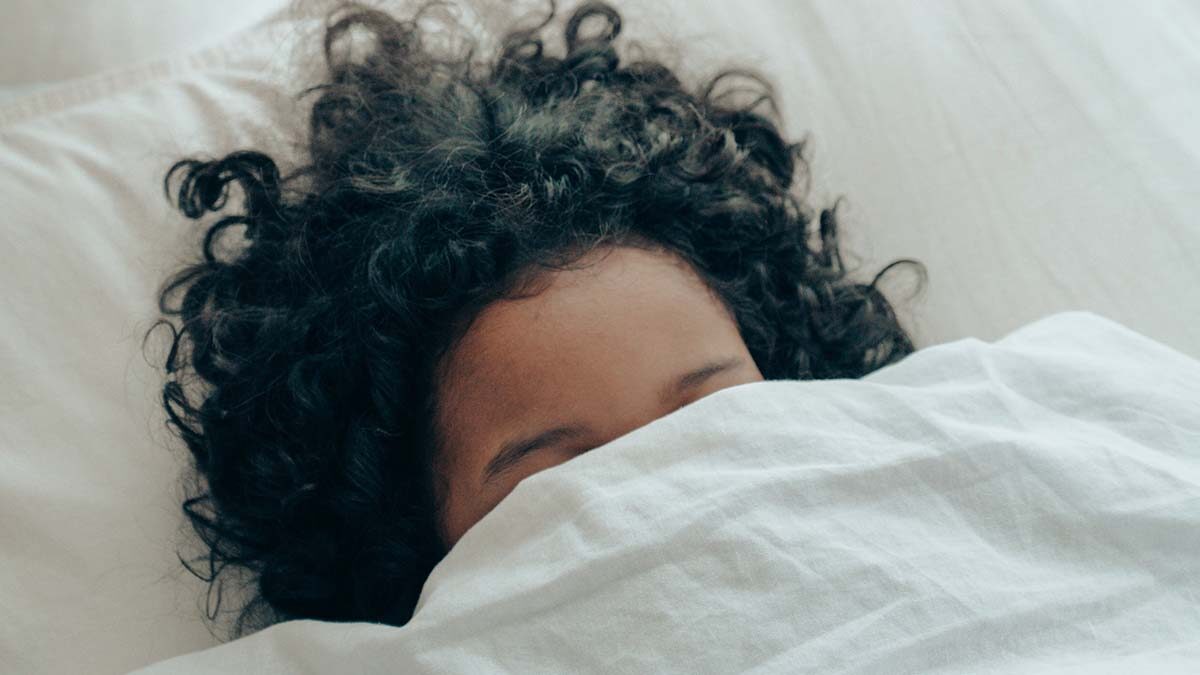Answer: It’s probably more—much more—than you think. And if your teen is sleeping all the time, there’s a surprising reason for that.
Remember when your teenager was a cute little baby with those squishy cheeks?
Remember how you’d use to sleep stalk them when they were younger, your heart brimming with love as you stared at their peaceful, sleeping faces?
Remember how strict you used to be about bedtime, ensuring they got at least 10 hours of sleep because any less and you’d have a very cranky child the next day?
Of course, as they grow up, you discover they need less and less sleep. They start dropping naps. As they head towards the teenage years, the hours they spend in bed start reducing. By the time they’re teenagers, they’re awake all hours of the night.
Want your teen to have adequate sleep and perform at their best? We have four ways you can help them develop good sleeping habits at the end of this article.
How sleep deprivation harms your teen
In young children, we know having little sleep can affect their mood. As your child grows older, the effect of lack of sleep worsens to the point where they become at higher risk of mental health issues and academic problems.
In their book, Generation Sleepless, Heather Turgeon and Julie Wright link sleep loss to:
- Anxiety and depression
- ADHD symptoms
- Apathy
- Underperforming in school and school struggles
- Drug use
- Irritability
- Injuries
- Difficulty concentrating
- Lack of motivation
How much sleep teens need
Research by the University of California, Los Angeles (UCLA) in the USA, has discovered teens need at least nine hours of sleep every night. While sleep needs do vary with individuals, eight hours of sleep—the magic number for most adults—is only deemed “adequate” for teens. Nine to 10 hours of sleep is “optimal” for teenagers.
What this means is that if your teen is staying up late on school nights, there’s a very high chance they’re going to school with a huge sleep deficit. It’s no wonder they then sleep the weekends away trying to make up for all that insufficient sleep they get during a normal school week.
“With so much missing sleep, the brain and body are taxed. During the week, most high school students are forced into an unnaturally early schedule and build up hours of ‘sleep debt’—or missing sleep that accumulates and can never be fully recovered,” write Heather Turgeon and Julie Wright.
“When adolescents sleep, neural pathways are refined and strengthened, emotions are processed, learned information and memories encoded, muscles are repaired and grow, and many other systems in the body complete essential tasks. Adolescents have a deep need for sleep because of the magnitude of these changes.”
Ensuring your teen has enough sleep isn’t simply about making sure they go to bed early, however.
In the video below, psychologist Collett Smart shares five parenting tips to help you connect with teenagers.
What time should a teenager go to bed?
A teenager should go to bed by 11 pm. However, it’s a sleep schedule that may need to be adjusted to ensure they get to school on time and still get a good night’s sleep. It’s also where everything starts to fall apart.
In the same UCLA study, researchers discovered puberty causes much more than mood swings, hairy legs and the onset of menstruation for girls. The hormonal changes also cause a natural shift in a teen’s circadian rhythm.
What this means is that their internal clock—the one that causes them to fell sleepy—naturally changes their sleep patterns. If you’ve ever wondered why teens often stay up late, this is why.
It’s not that they don’t want to go to bed at 8 or 9 pm like they usually do, it’s just that they have a hard time falling asleep when they try. Generally, this change, called a “sleep phase delay”, means they only feel the need to sleep at 10 or 11 pm.
4 ways to help your teen develop good sleep habits
There are a number of things parents can do to encourage and make it easier for teenagers to experience quality sleep.
1. Continue to be involved—creatively
One of the first responsibilities we relinquish as parents as our children get older is their bedtime. While forcing your teen to go to bed probably won’t work (teenagers crave independence and want to know their parents trust them to make the right decisions), parental involvement will still help them to develop healthy sleep habits.
“A study of seventh graders found that the greatest predictors of an adolescent’s sleep quality were the family sleep habits, such as having a regular bedtime, having sufficient wind-down time, and limiting screen exposure and caffeine before bed,” Generation Sleepless informs us.
Guide your teen towards wanting to sleep. Have conversations and share information about how sleep can improve their health, athletic performance or studies.
2. Monitor use of social media and electronic devices

Dr Arne Rubinstein, in his book The Making of Men, observes that 14-year-olds are averaging closer to 6.5 hours of sleep nightly “due to staying up late social networking, playing games or texting. . . . Chronic tiredness is a serious side-effect of device overuse. . . . Tiredness can also cause irritability, lack of motivation and in some cases contribute to depression.”
“Sleep quality and adolescent mental health have both followed a downward trend as the saturation of smartphones has increased since 2010,” write Heather Turgeon and Julie Wright. “As parents, we wouldn’t let our kids go to bed sipping a venti cappuccino, but the majority of teens retire to their bedrooms with devices that have equal sleep-stealing powers.”
Making sure your teen gets enough sleep at night isn’t simply about banning screen time however. Have a broader discussion with them about electronic media, sleep and how they feel, and come up with an action plan together.
3. Be wary of overload from academic and extracurricular activities
Teenagers often have to juggle homework, extracurricular activities and part-time jobs. It’s no wonder many of them don’t have time for sleep.
What’s your teen’s school’s homework policy like? You may need to explore with your teen the pros and cons of going to bed on time over finishing homework. Or perhaps they need help with time management?
Is your teen over-committed? Even as adults, we often fall into the trap of saying yes to too many things and signing up for too many activities. “We find many kids and parents are happier when they choose one or two activities instead of trying to keep up with what they perceive everyone else is doing (social media heightens the feeling we need to be somewhere all the time),” Heather Turgeon and Julie Wright point out.
4. Teach them healthy sleep habits
In their book, Generation Sleepless, Heather Turgeon and Julie Wright list five habits that can help teens to fall asleep easier, as well as improve the duration and quality of their sleep:
Set a regular sleep time
Lay out three routines: wind-down, bedtime and morning
Eliminate unhelpful sleep associations
Eliminate light and make the bedroom a cave (dark, cool and quiet)
Practise a sleep-friendly daytime
How helpful was this article?
Click on a star to rate it!
0 / 5. 0
Be the first to rate this post!
Melody Tan
Related posts
Subscribe
Receive personalised articles from experts and wellness inspiration weekly!

